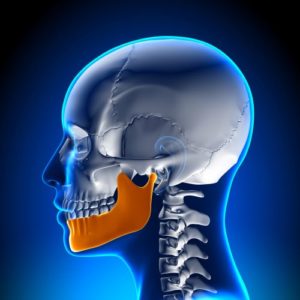Your Dentist in Daytona Beach Explains the Causes of Teeth Grinding
January 28, 2019
 Teeth grinding, also known as “bruxism,” is a common problem that afflicts millions of Americans. It has many possible causes, including medication side effects, nervous tension, and hereditary factors. Your dentist in Daytona Beach can treat the symptoms of the condition and help you to enjoy better oral health.
Teeth grinding, also known as “bruxism,” is a common problem that afflicts millions of Americans. It has many possible causes, including medication side effects, nervous tension, and hereditary factors. Your dentist in Daytona Beach can treat the symptoms of the condition and help you to enjoy better oral health.
Four Common Causes of Teeth Grinding
Studies show that teeth grinding affects up to 40 million Americans. Common causes of this problem include:
- Nervous tension. Stress is a chronic problem in our society. Not only does it contribute to high blood pressure and heart disease, it can also make some people more likely to grind their teeth.
- Excessive caffeine consumption. Whether it’s coffee, tea, or carbonated beverages, caffeine does more than give us added pep. It can also promote nervous habits such as teeth grinding.
- Medication side effects. Commonly prescribed anti-anxiety and anti-depression medications can lead to nighttime bruxism.
- Hereditary factors. Some people inherit a tendency to bruxism from their ancestors.
No matter the cause of your tooth grinding, your dentist has options that can help. These include medications, nighttime mouthguards, and lifestyle coaching tips.
Six Ways to Treat Bruxism
Possible treatment approaches include:
- Medication changes. If the problem is caused by medical side effects, then your dentist may suggest switching to a different medicine or altering the dosage you take.
- Stress management techniques. Sometimes learning how to manage stress is the only treatment needed for tooth grinding. Your dentist may recommend systematic relaxation, meditation, group therapy, or specific exercises.
- Dietary changes. If caffeine is at the root of your teeth grinding, then you may need to gradually reduce your consumption of caffeinated beverages.
- Over-the-counter remedies. Non-steroidal anti-inflammatory drugs (NSAIDs) like ibuprofen can relieve symptoms of teeth grinding such as muscle soreness and discomfort.
- A nighttime mouthguard. These are useful for preventing problems such as worn, cracked, or loose teeth that may result from tooth grinding.
- Prescription medicines. Dentist-prescribed muscle relaxers, analgesics, or injectable formulas such as Botox® are sometimes necessary to treat advanced cases of bruxism.
Long-Term Relief Is Possible
The vast majority of bruxism sufferers who seek treatment enjoy long-term relief from their symptoms. Benefits of professional care include:
- Peace of mind. Knowing the cause of grinding teeth in Daytona Beach may be all it takes to help you feel better.
- Improved oral health. Untreated tooth grinding can lead to serious consequences, including cavities, TMJ disorder, missing teeth, or difficulty opening and closing your mouth. Treatment helps to resolve these problems.
- A happier, healthier life. The methods used to treat bruxism often have added benefits for the patient. For example, learning to manage stress not only relieves tooth grinding, it also enables better management of blood pressure and other risk factors for cardiovascular disease.
There’s no reason to suffer needlessly from teeth grinding. Make an appointment with your dentist soon to discuss your treatment options. You’ll soon be on your way to a brighter smile and a better life.
About the Author
Dr. David R Lloyd is a graduate of the Emory University School of Dentistry. He served our country is a U.S. Navy dentist for several years before going into private practice. You can reach his office online or by calling (386) 253-3629.
No Comments
No comments yet.
RSS feed for comments on this post.
Sorry, the comment form is closed at this time.
